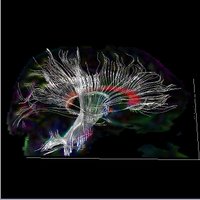Semantic vs Episodic Memory
 A traditional distinction made in the memory literature, similar to those reviewed in this and last week's posts, is that between the semantic and episodic forms of explicit memory. According to this framework, episodic memories contain sequences of events that pertain to specific times and locations, while semantic memories are more purely factual, and have abstracted away the more idiosyncratic elements of episodic memories. What evidence supports this distinction?
A traditional distinction made in the memory literature, similar to those reviewed in this and last week's posts, is that between the semantic and episodic forms of explicit memory. According to this framework, episodic memories contain sequences of events that pertain to specific times and locations, while semantic memories are more purely factual, and have abstracted away the more idiosyncratic elements of episodic memories. What evidence supports this distinction? The “consolidation” theory of hippocampal function posits that the hippocampus is necessary for the acquisition of both semantic and episodic memories, but that while the hippocampus is permanently necessary for the retrieval of episodic memories, semantic memories can become independent of the hippocampus for retrieval over time (Stickgold & Walker, 2005). This view is more compatible with evidence from amnesia than the alternative “Multiple Memory Trace” model, in which the hippocampus is always necessary for the retrieval of semantic memories, because some amnesics can still show normal performance on semantic memory tests, such as the vocabulary, information, and comprehension subtests of the Verbal IQ scale (Vargha-Khadem, et al., 1997).
A more refined version of this hypothesis is that subhippocampal MTL structures are sufficient for semantic but not episodic memory acquisition, because the greater degree of context specificity associated with episodic memories requires the hippocampus. In summary, some forms of explicit memory are independent of the hippocampus itself and rely on surrounding MTL structures, while episodic memories specifically require the hippocampus.
Tomorrow's post will synthesize the evidence reviewed previously about the distinctions between memory systems into a comprehensive three-system model of human memory.
References:
Vargha-Khadem, F., Gadian, D. G., Watkins, K. E., Connelly, A., Van Paesschen, W., & Mishkin, M. (1997). Differential effects of early hippocampal pathology on episodic and semantic memory [see comments] [published erratum appears in Science 1997 Aug 22; 277(5329):1117]. Science, 277, 376-380.


0 Comments:
Post a Comment
<< Home